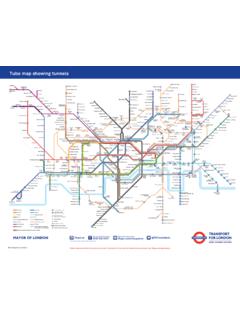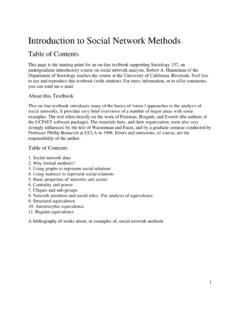Transcription of Bird Safety Corner - cafabirdclub.org
1 bird Safety Corner Heating Systems There are many ways to heat your home, all with their pros and cons with regard to ease of operation, cost, availability, and other factors, but we will focus in this column on how heating systems affect birds. This includes such factors as air quality from the heat itself, humidity, and toxic by-products. Central Systems Central heating systems are generally safe for birds. These include traditional furnaces and boilers, electric heat pumps, radiant baseboard heat, and radiant ceiling or floor heat. If you are installing a brand new system, however, check to make sure that venting is appropriate. While these systems are not normally coated with anything, it's hard to predict what will be coated these days, so it never hurts to ask your contractor if there are any nonstick or rust-proof coatings on your duct work or baseboards that could heat up and emit the same toxic chemicals that nonstick cookware does. Make sure that all central heating systems have a source of humidification.
2 Something that is often overlooked is annual inspection, cleaning, and tune-up of central heating systems. It is not uncommon for mold and other unpleasant substances to start growing in duct work, which can lead to respiratory irritation and worse. Note that a poorly maintained furnace or boiler can produce carbon monoxide, which can be potentially fatal. Stand-Alone Systems There are many stand-alone ways to heat a house, including wood stoves, fireplaces, kerosene heaters, propane heaters, gas heaters, space heaters, and oil-filled radiators, among others. Some people like to keep their thermostats low and put supplemental heat in their bird rooms. So, what's safe to use? Kerosene heaters, propane heaters, and gas heaters, particularly if not vented well, can produce carbon monoxide and nitrogen dioxide, two respiratory irritants which can be potentially lethal to birds and humans alike. Keep in mind that birds are much more sensitive to gases than humans, and that these gases are odorless and, in the case of carbon monoxide, colorless, so are difficult to detect.
3 Even properly vented and maintained devices such as these produce higher than normal carbon monoxide levels due to incomplete oxidation during combustion, so they are inherently more dangerous than furnaces and boilers. They should not be used in a home with birds. Period. Wood stoves and fireplaces produce carbon monoxide and particulates by incomplete combustion. People with allergies and asthma are advised to avoid being around wood stoves and fireplaces, and it can be worse for your birds. It is not advisable to keep your birds near these heating sources, though they could be in the next room. NEVER burn treated wood! Electric space heaters are generally safe around birds, BUT (and this is a big but!) are often sold with a nonstick coating on them to prevent corrosion while in the warehouse and in transit. You should NEVER run a new electric space heater around birds unless you are certain it does not have a nonstick coating on it. The heater should be initially run someplace away from your birds until the coating burns off.
4 So how long should you run it to be sure it's safe? Heck if I know! There is no magic number to ensure Safety . Probably a matter of a few days, but who knows? Old heaters that you've had around the house for years and have run a lot are probably safe. You could always call the manufacturer and ask if there's a nonstick or anti-corrosion coating on the heater. That works best for products made in the where you can actually speak to technical staff which knows something about how the products are made (make sure you ask for technical support, not customer support). Oil-filled radiators are your best bet around birds. They are clean-burning, do not emit any particulates or dangerous gases, and are cool to the touch. They do not usually have a nonstick coating. However, never say never, so as with every other heating system, make sure you check with the manufacturer, and, if in doubt, run it for a few days far away from your birds. Other devices are marketed specifically for birds and reptiles and can be useful for small areas.
5 These include bird -safe heat lamps (other non- bird specialty bulbs may be coated with PTFE, the substance used for nonstick cookware). Ceramic heating elements emit heat with no light and are considered safe, though you need to make sure that your bird cannot touch the heater since they get very hot to the touch. Infrared heating panels are considered safe, though as with everything else, make sure you find out if there's a nonstick coating on it. Other considerations Any heating system used should be regularly inspected and maintained. There should be good venting whenever a heating system is used. Install carbon monoxide and smoke detectors in your house and either hardwire them to an alarm system or change the batteries regularly. Make sure any heating device has Safety features, like automatic shut-offs if they malfunction or fall over. Proper humidity is very important. Low humidity when the heat is running can lead to dry feathers, respiratory irritation, and featherpicking.
6 If your system does not have built in humidification, get a humidifier. Your birds will feel and look better, and you will too! Amy Hopkins, The Parrot Club, 2011, 2016. All rights reserved Oil radiator by Ashley Pomeroy (talk) - I (Ashley Pomeroy (talk)) created this work entirely by me, CC BY.






